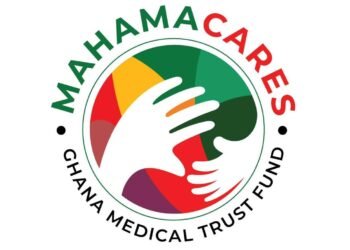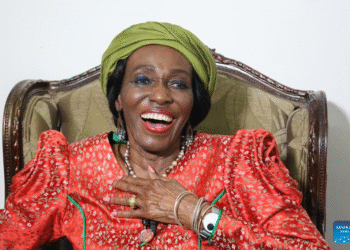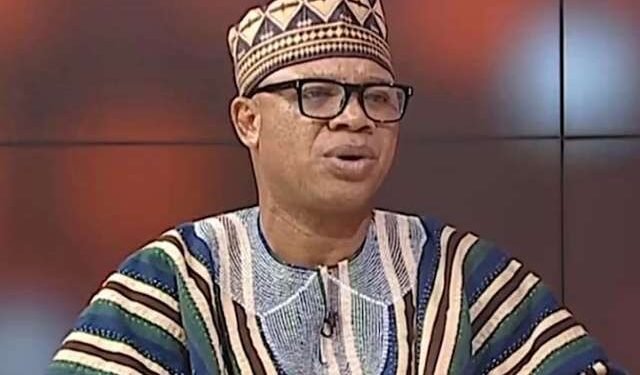Pay-TV pricing in Ghana has become the latest flashpoint in the country’s ongoing debate over economic reform and market governance, as the policy think tank IMANI Africa has raised alarms over growing political interference in private sector pricing.
In its recent policy brief, the IMANI Center for Policy and Education issued a strong caution to government actors about undermining market confidence through unilateral pricing directives.
Ghana’s economic outlook at mid-year 2025 has shown promising signs of stability and recovery.
During the Mid-Year Fiscal Policy Review presented to Parliament on July 24, 2025, Finance Minister Dr. Cassiel Ato Forson highlighted a 5.3% real GDP growth rate in the first quarter, a reduction in inflation to 13.7% by June, a 42.6% appreciation of the Cedi against the US dollar, and a notable decline in the public debt-to-GDP ratio from 61.8% to 43.8%.
According to IMANI, these indicators reflect renewed investor confidence and macroeconomic stewardship.
“Yet as Ghana’s macro indicators brighten, a worrying pattern of direct price interventions by political actors has emerged. Rather than championing policies that foster competition, innovation, and private sector-led growth, Minister for Communication, Samuel Nartey George, has openly summoned private firms—first telecommunication companies, now Multichoice Ghana—to cut their prices on command.
“Such top-down mandates risk undermining the very market trust that underpins the economy’s recent upswing.”
IMANI Center for Policy and Education

While these telecom reforms were lauded by the public, IMANI argued that extending this interventionist approach to the pay-TV industry is problematic.
Unlike mobile data, Pay-TV services such as DSTV rely heavily on foreign currency-denominated content licenses, including exclusive sports rights and international channels.
According to IMANI Africa, these costs are significantly influenced by global market forces and currency fluctuations.
IMANI Calls For Urgent Competition Law
Meanwhile, between 2021 and 2025, DSTV’s Access package fees in Ghana increased from around GHS45 to GHS99, a rise of nearly 120%, averaging 30% annually.
Though the price hike appears steep, IMANI stressed that it masks the complexity behind operational costs—content acquisition, currency hedging, and a market structure dominated by one major provider. This lack of competition effectively limits downward pricing pressure on DSTV.
“When a firm holds a near-monopoly, pricing power follows,” IMANI noted, suggesting that Ghana’s issue lies not in DSTV’s pricing strategy, but in the structural imbalance of the media market.
StarTimes, while a lower-cost alternative, holds only a marginal share of the market, and state broadcaster GBC’s recent channel additions lack the appeal of DSTV’s international offerings.
“A comprehensive Competition Act would not only curb monopolistic pricing but also incentivize new players—both domestic and regional—to challenge Multichoice’s dominance. Civil Society experts have long urged Parliament to pass the draft competition bill that has been idle for nearly two decades.”
IMANI Center for Policy and Education

IMANI believes the way forward lies in strengthening market institutions rather than issuing directives.
Accordingly, the group called for Parliament to urgently pass the long-delayed Competition Law, a bill that has been idle for years.
This legislation would provide a legal framework for addressing monopolistic practices, enabling regulators to investigate, fine, or compel divestiture when necessary.
The think tank also recommended that the Communications Ministry abandon coercive price controls in favor of convening transparent, multi-stakeholder dialogues with pay-TV operators.
Such meetings should require providers like MultiChoice Ghana to submit detailed, audited cost breakdowns—including licensing fees, exchange rate hedging, and local operations.
This would provide clarity on whether Ghanaian consumers are truly being overcharged compared to markets like Nigeria and South Africa, where DSTV packages cost significantly less.
IMANI Urges Transparent, Competitive Pay-TV Pricing Reforms
IMANI Africa further argued that transparency is the first step toward fair pricing; however, it must be institutionalized through robust competition policy.
With the government no longer subsidizing DSTV subscriptions for its own officials—a move that has removed thousands of guaranteed accounts—there is now a critical opportunity to renegotiate costs with broadcasters from a position of mutual accountability rather than force.

“Meanwhile, a strengthened Competition Authority would be empowered to investigate anti-competitive practices and curb any abuse of market dominance. To attract new entrants, the government can offer targeted incentives—such as tax credits or streamlined licensing—to credible competitors.”
IMANI Center for Policy and Education
A fully empowered Consumer Protection Agency and a functional Competition Authority would ensure that consumer grievances are resolved swiftly, market dominance is scrutinized, and new market entrants are incentivized through tax breaks or streamlined licensing processes.
These actions would not only protect consumers but also reinforce Ghana’s broader economic reforms.
IMANI’s concluding message is clear: as Ghana aims for a 2025 end-year GDP growth of 4.0%, non-oil growth of 4.8%, inflation down to 11.9%, and a primary surplus of 1.5% of GDP, policymakers must prioritize regulatory maturity over political populism.
Only a rules-based economic environment can sustain the gains made so far.























